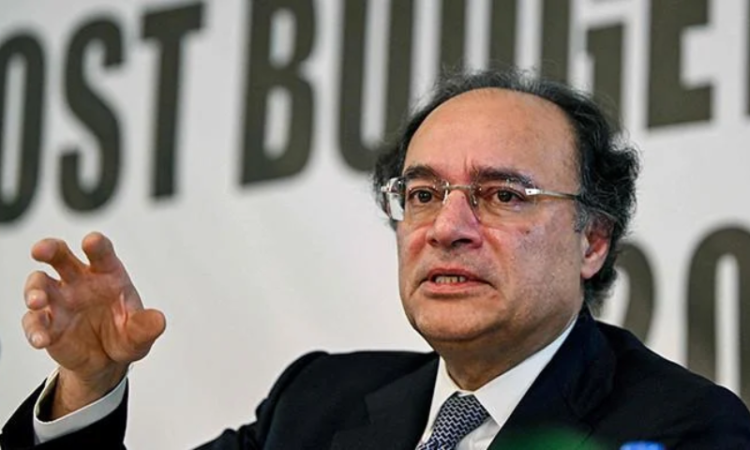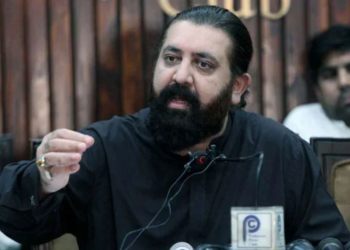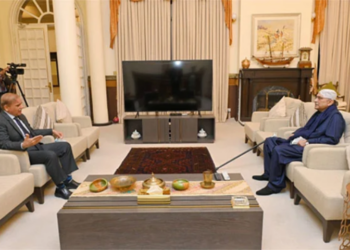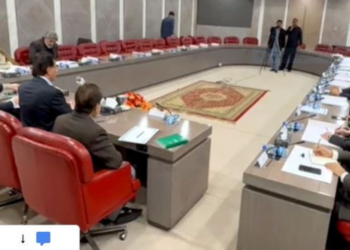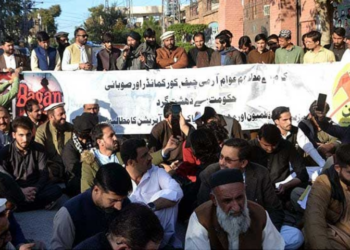ISLAMABAD, November 16,2024- The federal government has ruled out the possibility of a mini-budget, rejecting reports of additional tax measures after the conclusion of a staff visit by the International Monetary Fund (IMF) to Pakistan.
The IMF delegation, led by Nathan Porter, visited Pakistan from November 12 to 15 for discussions on economic policies and reforms. Finance Minister Senator Muhammad Aurangzeb described the talks as constructive and productive, emphasizing that virtual negotiations with the IMF are ongoing to address matters requiring further deliberation. Speaking to a private TV channel on Saturday, the minister highlighted the importance of open and fact-based dialogue, noting that the IMF team carefully considered Pakistan’s position and appeared satisfied with the discussions.
Aurangzeb stressed that the visit was not intended to review Pakistan’s economy but to build confidence between the parties. A first-time finance minister with extensive private banking experience, he expressed optimism about the outcome of the discussions, which he said aligned with the country’s economic goals.
Earlier, the IMF urged Pakistan to broaden its tax base by targeting untapped revenue sources to improve tax collection. In a statement, the IMF clarified that staff visits are standard practice for countries undergoing semi-annual program reviews and are designed to assess economic developments and the status of planned reforms. Nathan Porter stated that discussions focused on reducing vulnerabilities, maintaining prudent fiscal and monetary policies, and mobilizing untapped tax revenue. He also emphasized the importance of transferring greater social and development responsibilities to provinces while implementing structural reforms in the energy sector to restore its viability.
The IMF expressed encouragement at Pakistan’s renewed commitment to economic reforms under the 2024 Extended Fund Facility (EFF), acknowledging the steps taken to address fiscal and structural challenges.
Finance Minister Aurangzeb acknowledged setbacks, particularly the failed privatization of Pakistan International Airlines (PIA), but reaffirmed the government’s commitment to privatizing state-owned enterprises (SOEs). He stated that privatization efforts would continue gradually, encompassing not just PIA but also other SOEs such as Gencos, DISCOs, and airports.
Discussing the power sector, Aurangzeb commended Federal Minister Awais Leghari for his efforts to improve transmission and distribution systems. He also addressed the delay in approving the National Fiscal Pact, attributing it to logistical issues that have now been resolved. He thanked provincial leaders, including Sindh Chief Minister Murad Ali Shah, for their cooperation and support, adding that the Khyber Pakhtunkhwa government has consistently aligned with the federal government on matters of national interest.
Aurangzeb further highlighted ongoing efforts to reform governance and the pension system. He stated that the government has completed rightsizing in 11 ministries, with work underway in five more. On pension reforms, he rejected criticism that no progress had been made, noting that civil bureaucrats would now contribute to the pension scheme.
The finance minister reiterated the government’s commitment to implementing reforms that would strengthen fiscal sustainability and lay the foundation for sustainable economic growth.



